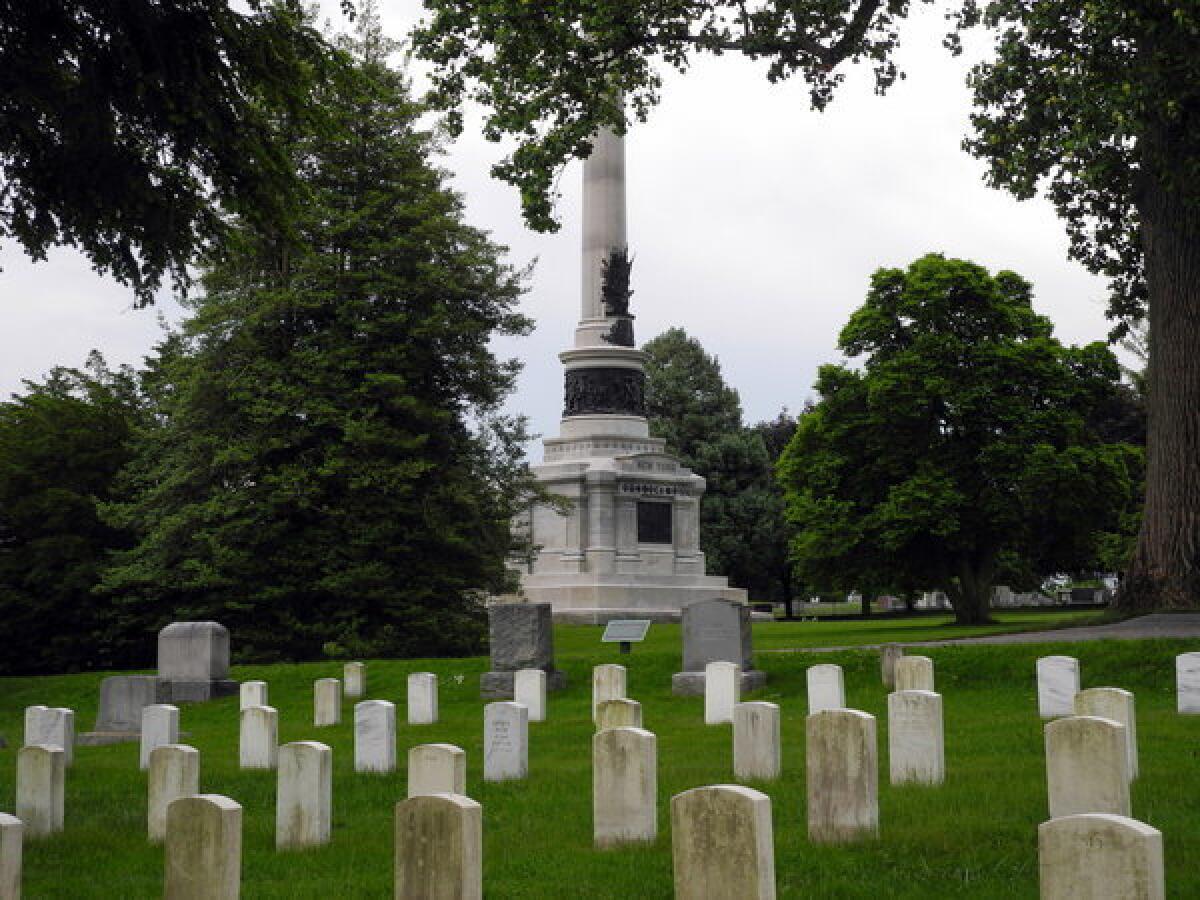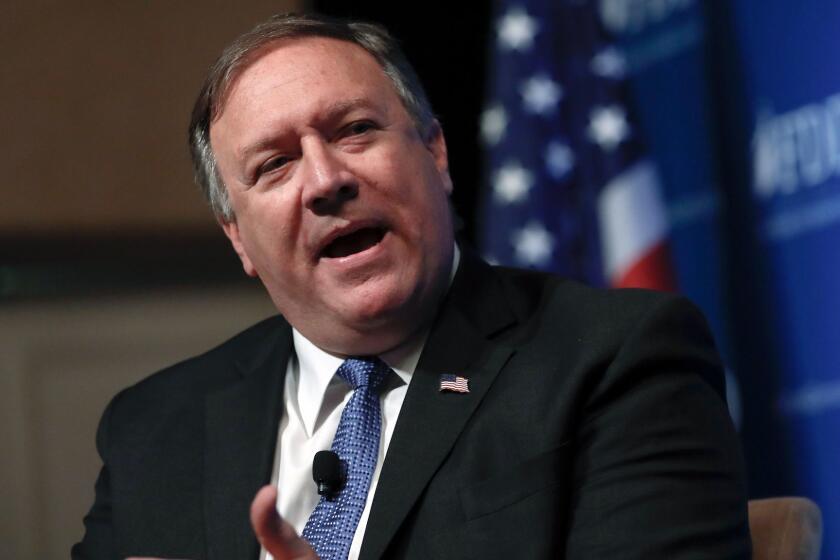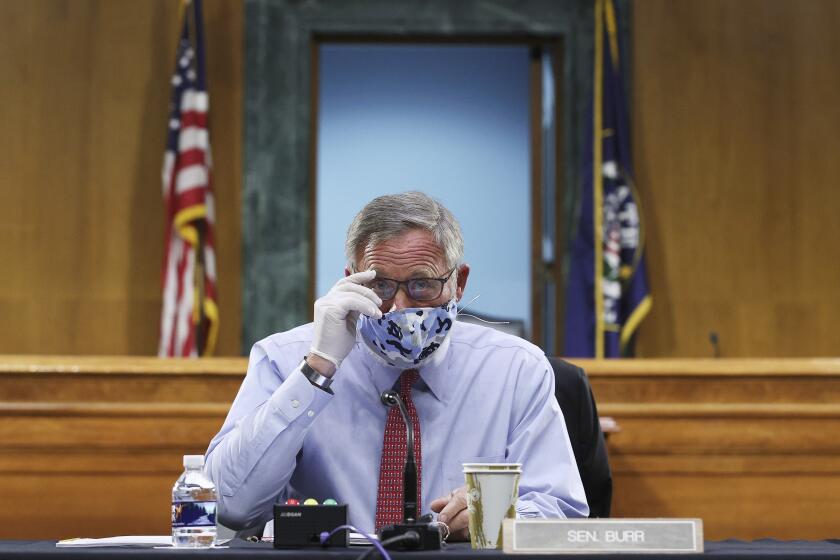On Memorial Day, a nation recognizes its collective debt

- Share via
Sixty years ago this past February, a U.S. Navy plane on a routine flight out of Saigon slammed into a low mountain as it neared Hue, killing all three men aboard, including co-pilot Lt. Cmdr. George Wood Alexander, a career Navy man from Glendale. They were among five U.S. military deaths in 1960 tied to the U.S. presence in Vietnam, then numbering 900 troops as growing tensions soon led to open war and mass American deployments. The other two deaths came from an accident and an illness, so none of the five died in combat, yet they still perished as a direct result of their military service. Such is the nature of war — the risks soldiers face aren’t limited to the battlefield.
The practice of formally recognizing those killed in war arose in scattered places around the South at the end of the Civil War, with several of the earliest organized by former slaves and black freedmen recognizing the sacrifice of Union soldiers in ending slavery. In 1868, the grassroots events jelled into Decoration Day, which during World War I expanded from remembering the dead of one war to remembering the dead of all wars (though Congress didn’t recognize Memorial Day as a federal holiday until 1938).
About 9 million soldiers died in World War I, nearly 117,000 of them Americans, whose arrival in 1918 tipped the balance and led to the defeat of Germany and its allies. Half of the American deaths weren’t from bullets or bombs or fire but from illness. That was a much lower total than during the Civil War, when two-thirds of soldier deaths were a result of illness. In fact, World War II was the first war in which more U.S. troops died in battle than from disease and other causes, a testimony to advances in medical treatment.
Trump doesn’t like it when government watchdogs bark.
And here in the midst of the coronavirus outbreak, service members continue to be at risk, particularly those living on Navy ships and other assignments that bring soldiers together in close quarters, including the crew of the Theodore Roosevelt aircraft carrier, whose captain was relieved of his command after he put the health of the men and women under him ahead of Pentagon protocol. So even in relative peacetime, the non-combat threats remain.
When it comes to war, we have been lucky as a nation. For the most part during our history, we fought them elsewhere. We mounted a War of Independence around 1776, fought the British again in the War of 1812 (which led to the torching of the White House), fomented countless battles with North America’s native nations in our quest for more territory, wrested 525,000 square miles from Mexico, and survived the fratricide of the Civil War, a hellacious endeavor that involved 3.2 million soldiers on both sides (at least 620,000 died) in a nation that then only numbered 22 million people. Yet during the 20th century, perhaps the most violent century in human existence, the U.S. faced no serious threat of invasion.
So the pain of those wars fell on people in the countries where they took place and on the Americans who fought them, and on their families. We observe Veterans Day in November to honor all those who served, preserving Memorial Day to remember those who died. Having two national holidays devoted to those who fought reflects how much war has come to dominate our culture (we have no national holiday celebrating peace). Over the past few weeks, military jets have done fly-bys in different spots around the nation, including here in Southern California, to recognize front-line professionals working to stifle the pandemic.
Lawmakers aren’t expected to take a vow of poverty. But they are expected to avoid conflicts of interest, real or perceived.
It’s an odd linkage, a display of military might to honor civilian health and emergency workers. But maybe such homages are a logical extension for a society that describes a medical campaign against disease as a war — much as we have declared wars on drugs and poverty. Everything is a war these days, it seems. The war on immigrants. The war on women’s reproductive rights. The war on Christmas. The war on science.
Those political metaphors aren’t wars, of course. Wars are the bloody next step after failed diplomacy, the final resort in imposing the will of one government on another or, conversely, of overthrowing oppression and birthing a nation. Sometimes they are necessary, sometimes they are the result of blundering national leaders, sometimes they are pure folly, But in all, soldiers do what is asked of them, and our cemeteries are filled with the human cost. Today we again recognize that collective debt.
More to Read
A cure for the common opinion
Get thought-provoking perspectives with our weekly newsletter.
You may occasionally receive promotional content from the Los Angeles Times.











